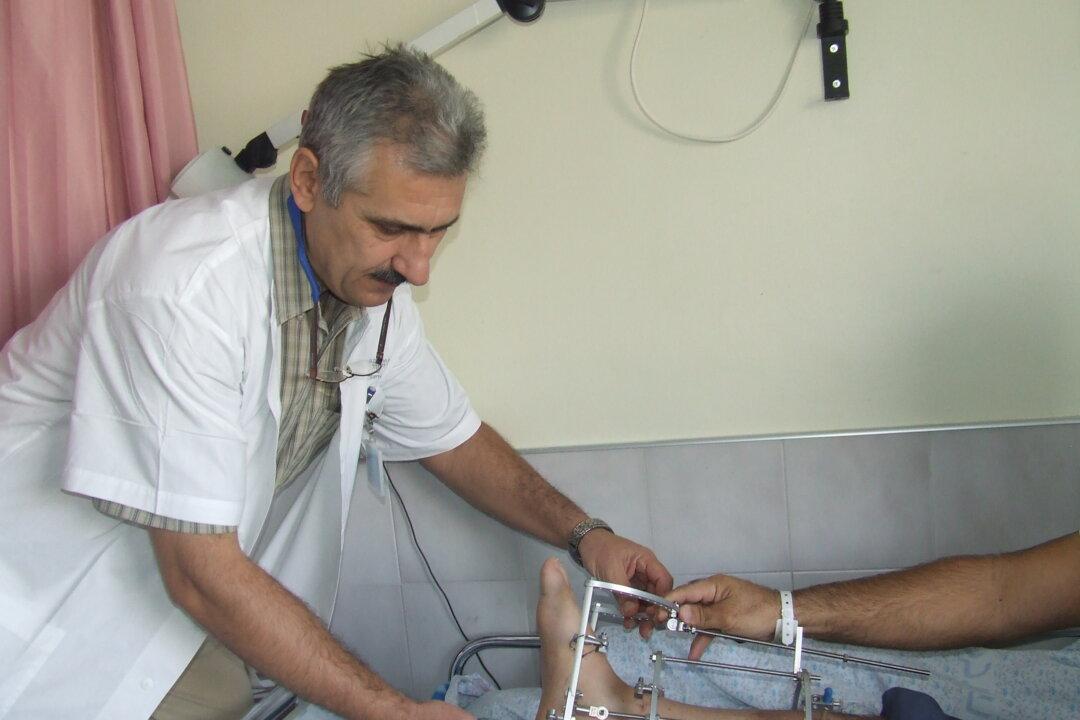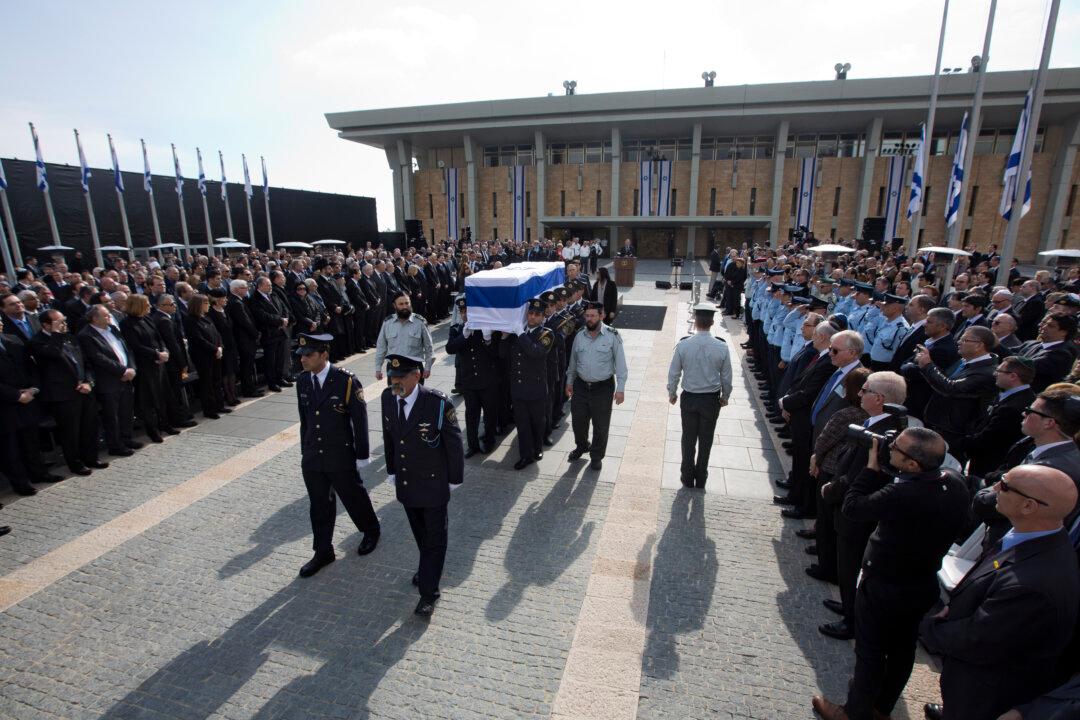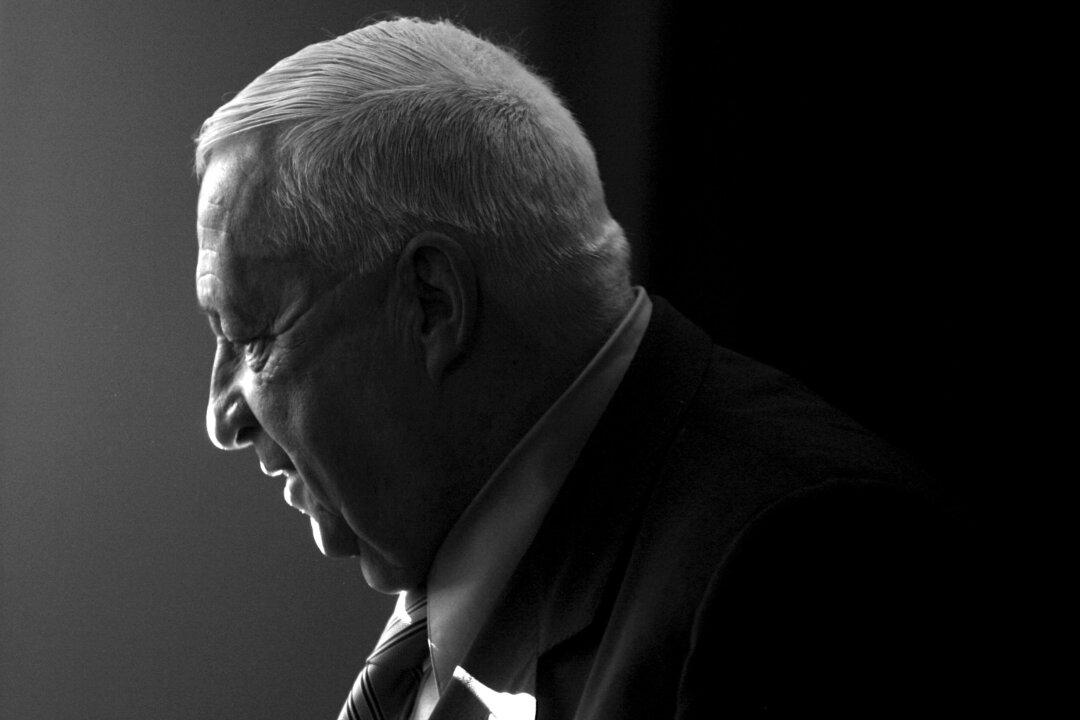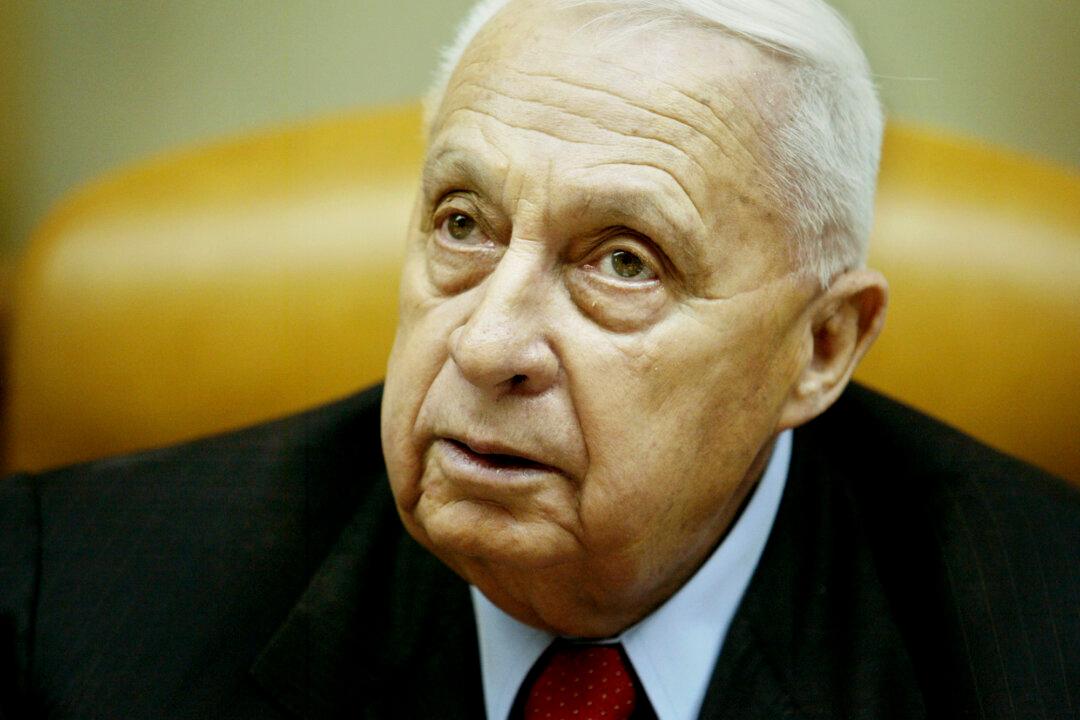TEL AVIV, Israel—Ziv Medical Center is a welcome sight for injured Syrians, located on the green, pastoral mountains of Galilee in the small city of Safed, Israel, close to the Syrian border. For the past 60 years it’s been the stage of many battles between Israel and Syria and the fighting continues.
Raised to view Israelis as the enemy, Syrian patients now find themselves in Israeli care, explained Faras, an Arab-speaking Israeli social worker at the center who preferred to only give his first name.
“We know nothing about where they came from, and we don’t ask them. We try to dissolve their fear,” Faras said. It takes time to reassure them that no one will harm them, he said.
It’s easier to gain the trust of children than to gain the trust of adults.
“One teenager, after few days at the intensive care unit, asked the nurse if he could use her iPhone to enter his Facebook account,” recalled Faras with a smile. It was a small, yet significant, sign that the teen felt comfortable.
‘We are all human beings’
One of the most touching moments Dr. Alexander Lerner, director of the department of orthopedic surgery at the center, experienced involved a 15-year-old Syrian girl who was wounded when a bomb landed on her home. One of her legs had been amputated in Syria following the incident.
At the Ziv Medical Center, she was provided with a prosthetic limb and she received a month of treatment. The limb was given by Israeli donors, as are many of the center’s supplies.
When she took her first, halting steps, people lined the corridor to watch and she laughed in joy as everyone applauded.
Her mother thanked the medical team before she and her daughter left the hospital, and said, “We hope to meet you again in a saner Middle East, as we all are human beings.”
The Broader Situation
Some Syrians are treated at hospitals in Israel, and some are treated at field hospitals establish by the Israeli Defense Forces (IDF) on the border.
According to an IDF spokesman, since the beginning of 2013, more than 500 Syrian refugees have been treated in Israeli civilian hospitals and IDF field hospitals.
“The persons treated were all suffering from serious conditions that warranted their treatment in Israeli hospitals,” the spokesman said. The service is provided on humanitarian grounds and is unrelated to Israel’s policies regarding the Syrian conflict.
More than 190 Syrian refugees have been hospitalized in the Ziv Medical Center, most of them civilians including women, children, and the elderly. At times, Syrians have constituted more than a third of the patients in the center’s orthopedic department.
Language barriers are not an issue, said Dr. Calin Shapira, the center’s deputy director: “Galilee is home to many Arab minorities of Israel, [many] Muslims, Druze, Christians, and others. The medical center is a reflection of the population. For many of the doctors, nurses, and social staff, Arabic is their mother tongue.”
He said a clown who speaks Arabic is even on hand to make the Syrian children laugh.




